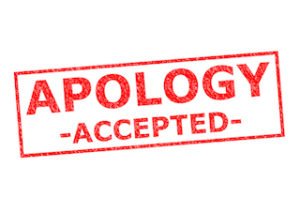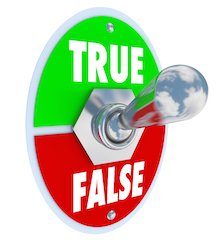Insurance agents, financial planners, and investment advisors are highly skilled at understanding how financial instruments work.
They are accustomed to doing due diligence on a wide range of financial offerings, including life insurance, disability insurance, annuities, and securities of many types. And well they should, since to avoid errors-and-omissions claims, they must be able to match up prospect needs with products that respond to those needs. Unless they are intimately familiar with how their offerings work, they will be unprepared to recommend suitable products to their clients.
However, just like a cobbler’s children often go without shoes (OK, there aren’t many cobblers left in the 21st century, but you get our point), financial professionals often buy errors-and-omissions insurance for themselves without thoroughly knowing its provisions. This is understandable for three reasons:
First, they’ve got plenty of other work to do, which pays the bills, while buying E&O insurance does not.
Second, the need to buy E&O coverage often arises without prior notice (a new FMO or broker-dealer might require it prior to contracting).
Third, renewal dates roll around much sooner than anticipated, catching advisors off guard.
For these three reasons, advisors often find themselves scrambling to buy the coverage they need under severe time constraints, which leads them to make a cursory rather than careful buying decision. And this can result in surprises later when their insurer fails to provide coverage for an excluded loss. To protect yourself, read the specimen policy fully and study its definitions carefully. Even though you’re really busy, the time you spend on this will be time well spent.
Now, we understand that reading a 30-page specimen policy is no one’s idea of great fun (unless you’re an E&O insurance broker). If you can’t bring yourself to read the entire document, focus exclusively on the insuring agreement and the exclusions. In other words, be totally clear on what the policy covers and what it doesn’t before buying it. In the remainder of this article, we’ll provide an initial discussion of the insuring agreement. In Part 2 of this series, we’ll discuss common E&O insurance policy exclusions.
• When you bought your E&O Insurance, was the price of the coverage the main factor in your choice, or were you more concerned with the provisions of the insuring agreement to ensure it does a good job of protecting you? Share your thoughts on this new thread: E&O by price or capability?
So let’s take a closer look at the insuring agreement. This language is the core of any E&O insurance policy because it defines the scope of protection offered. For example, here is the basic insuring agreement for a typical E&O contract, with the key elements indicated in bold:
“The Insurer shall pay on behalf of the Insureds, excess of the applicable Retention and within the Limits of Liability as stated in the applicable Certificate of Insurance that Loss which the Insureds become legally obligated to pay resulting from a Claimfor a Wrongful Act solely in rending or failing to renderProfessional Services.”
Knowing how the policy defines “insured” is pivotal because only insureds are eligible to receive benefits under the policy. In the contract under discussion, insured is defined as “the named insured and any natural person who is a former or current secretarial, clerical, or administrative employee of the agent, general agent, or registered representative, but solely for the services performed within his or her capacity as such and on behalf of such Named Insured, provided such natural person did not receive any commission income pursuant to an agent, broker or registered representative contract with any insurance company or Broker/Dealer as a result of providing Professional Services Offered by the Named Insured.”
Quite a mouthful, but the important takeaways are that coverage is available not only for the agent or advisor who purchases the policy, but also for individuals who work (or have worked) for the agent or advisor. However, the errors and omissions of employees will only be covered if they’re committed in the course of their normal duties and only if they are not eligible to receive commissions. In other words, if an employee does something that is normally not part of their job or receives commissions as a licensed agent, then the person’s error or omission won’t be covered under the policy.
“Loss” is defined as “monetary settlements or monetary judgments (including any aware of pre-judgment and post-judgment interest) and defense costs for which the insured is legally obligated to pay on account of a covered claim.” The policy goes on to list six items that aren’t considered losses, including punitive damages, criminal or civil fines or penalties, the return of commissions, and several others. Insurers define “loss” in various ways, so it’s crucial to understand the specific definitions before buying a policy.
Next we come to “claim.” This means “a written demand for monetary damages or a civil adjudicatory or arbitration proceeding for monetary damages, against an insured for a wrongful act, including any appeal thereof, brought by or on behalf of or for the benefit of any client.” Notice that this language does not list a routine regulatory inquiry as a claim, nor does it consider oral demands as having met the definition of claim. Both of these provisions give you a bit of breathing room in determining when to contact your insurer after a problematic client incident. But when in doubt, always err on the side of caution and report a potential claim to your insurer as soon as possible.
“Wrongful act” means “any negligent act, error, or omission of, or personal injury caused by, the insureds in rendering or failing to render professional services.” Not all policies require an act to be negligent in order to provide coverage, so make sure to understand how your policy approaches this issue.
Finally, we come to “Professional Services.” This provision defines the nature and scope of the insured’s professional duties. In the case of the policy we’re discussing, it limits coverage only to agents or general agents, who are properly licensed in the client’s state or jurisdiction as well as the agent or general agent’s state or jurisdiction and who are involved in the sale, attempted sale, or servicing of life, accident, and health insurance (including managed health care organization contracts), disability insurance, and indexed or fixed annuities. Covered duties also include financial planning activities and supervision and training of other agents. What’s most important in this regard is making sure your job functions and products sold align precisely with the policy’s definition of “professional services.” If they don’t, you will be in for a rude awakening if you ever need to use your policy.
Insuring agreements have other components, too, but the ones we just discussed are the most significant ones in our opinion. Now, if you currently have an errors-and-omissions policy, do yourself a favor and read the insuring agreement soon. Does it make sense to you? Do you think it does a good job of protecting you and your firm? If you answered “no” to either of these questions, it’s time to call your insurer or E&O broker and share your concerns. If you don’t like their answers, it may be time to reconsider your E&O insurance options.
• When you bought your E&O Insurance, was the price of the coverage the main factor in your choice, or were you more concerned with the provisions of the insuring agreement to ensure it does a good job of protecting you? Share your thoughts on this new thread: E&O by price or capability?
For more information on affordable errors and omissions insurance for low-risk financial advisors, visitE&OforLess.com. For information on ethical sales practices, please visit the National Ethics Association’s Ethics Center.













